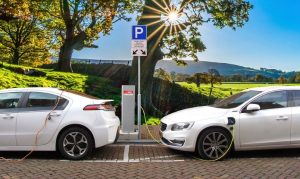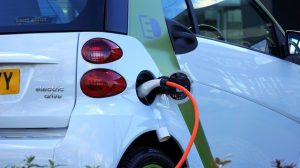 In the last few years, millions of people have been making the switch from vehicles powered by gas-guzzling internal combustion engines like these used gas engines to electric and hybrid-electric vehicles.
In the last few years, millions of people have been making the switch from vehicles powered by gas-guzzling internal combustion engines like these used gas engines to electric and hybrid-electric vehicles.
When you stop to look at the numbers, it can be easy to see why. Though electric and hybrid-electric vehicles can have a marginally higher purchase price, the savings they can make on fuel and maintenance can be staggering. The money they save can be very important to the average family, as well as the ‘green’ credentials that come with operating a non-combustion engine powered vehicle.
Here we are going to look at the differences between fully electric and hybrid-electric vehicles, to help you decide which would be the best choice for you.
What are Hybrid Vehicles?
Some of the earliest cars and trucks ever made were powered by batteries. These vehicles quickly fell out of favor to internal combustion powered cars for one of the reasons people still don’t make the switch to pure electric cars today – range.
Hybrid vehicles offer a ‘best-of-both-worlds’ solution, as they have both battery power and a gasoline powered engine. The vehicles are able to switch from one power source to the other seamlessly, taking away the ‘range anxiety’ that many who drive purely electric vehicles can experience.
How is an Electric Vehicle Different from a Hybrid?
 Electric vehicles rely solely on batteries for power, and upon charging stations and home charging for all their energy. Cars like the Chevy Bolt use this to offer drivers very cheap re-fueling, but at the cost of reduced range or frequent trips to charging stations.
Electric vehicles rely solely on batteries for power, and upon charging stations and home charging for all their energy. Cars like the Chevy Bolt use this to offer drivers very cheap re-fueling, but at the cost of reduced range or frequent trips to charging stations.
Hybrid cars recharge their batteries through energy retention systems like regenerative braking, and sometimes excess energy produced by their combustion engine. Some can also be plugged in at home or at charging stations as well. Because a hybrid can rely on its combustion engine for energy, it can also refuel at gas stations that are a much more common sight on the roads than electric vehicle recharging stations.
Which is More Efficient?
Deciding on which type of vehicle is more efficient than the other is harder than it sounds; it is not an apples-to-apples comparison.
Fully electric vehicles offer the lowest cost per mile, and also the lowest carbon footprint. They often travel fewer miles overall, however, because of their reduced range and the surprisingly few charging stations that are available on the roads today.
Hybrid and Plug-in Hybrid vehicles will cost slightly more per mile and have a larger carbon footprint, but in day-to-day driving offer considerable reductions in both factors over internal combustion powered vehicles. Depending how the user drives them, they can even compete closely with pure electric powered cars.
One thing is for certain, vehicles that are powered by batteries can offer their drivers considerable fuel savings over the lifetime of the car. The savings come with every mile you drive, and hybrids tend to travel more miles a year than their fully electric counterparts.
This makes them a great choice for drivers until the technology behind fully electric vehicles can catch up and overcome their range problems, or the infrastructure of electric vehicle charging stations becomes more widespread and accessible.










